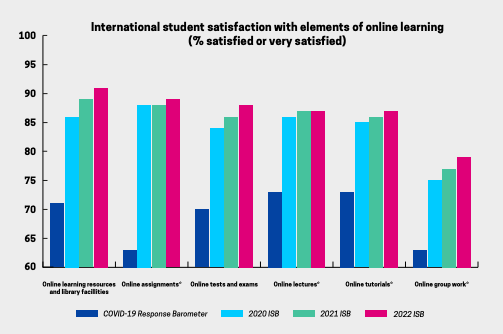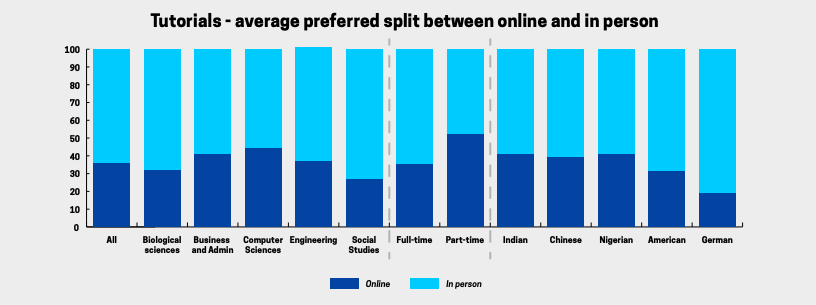Overseas students “treated as cash cows” in UK
Stakeholders are accusing the government of treating migrants to the UK, including international students, as “cash cows” amid lofty health surcharge fee increases and the promise of visa fee rises.
Along with changes to foundation courses to cut down on “rip-off” programs, UK PM Rishi Sunak announced that migrant fees would be increased “significantly” to raise over £1 billion to fund public sector pay rises.
It comes after strikes have plagued the country for the last year, including by nurses, doctors and teachers.
Students wanting to study in the UK will be expected to pay a discounted NHS surcharge fee – or Immigration Health Surcharge – of £776 a year, instead of the previous discounted £470. The rise is equivalent to a 65% increase.
Visa fees will also be going up, with figures being reported at around 15% for migrants, but 20% for students – no official figure has been released.
“This news will be very disappointing to the international students and global talent that choose to live, work and study in the UK – they make an invaluable contribution to our universities and to our communities,” Jamie Arrowsmith, chief executive of Universities UK International, told The PIE News in a statement.
“The UK is already perceived as having high immigration costs relative to other nations. Increasing these further, as other countries redouble their efforts to attract more international students, can only serve to reinforce that perception,” he continued.
Teeroumanee Nadan, who is an expert in internationalisation and has been watching the developing situation with international students in the UK, agreed that the competition would become more difficult.
“Having to rely on international students to cover internal budgeting will further damage the UK’s reputation both in the educational sector and in the global economy.
“Australia provided substantial financial aid and support to international students during Covid – unlike the UK – and Canada has always been loud and clear about how open it is to international talent.
“Perhaps this will be reflected in an increase of foreign students going to other countries”
“The UK has already closed itself off with Brexit and closing international prospects in the education sector will create a series of time bombs that will explode after the 2025 elections – and be someone else’s problem,” she told The PIE.
Those who would indirectly be receiving the so-called benefit of the increase – public sector workers – have called out the government’s policy, with migrant charity Praxis accusing the government of using migrants as “cash cows” and one Serbian lecturer at Cardiff University telling the Guardian it is “borderline racist”.
The union representing junior doctors, who are at the centre of the recent strike action, called the move “immoral and divisive”.
“The NHS surcharge goes against the founding principles of the NHS as a universal service, free at the point of need,” Doctors in Unite said in a statement.
Nadan called the move to increase the fees “ironic”, and also pointed out that international students have already been penalised in the UK this year, with a ban on dependants on postgraduate taught programs being introduced.
“Bearing in mind that the highest numbers of international students are from India and China, this will come in handy for the short term to appease tensions among the general public.
“But with India now being the fifth largest economy, and China already at number two, economically this is not well thought through.”
Despite the issues surrounding the IHS fees, one agent said he was confident it wouldn’t impact the market.
“The IHS fee, when put together along with the other fees, in reality is not a big issue [for students]”, Noor Hasan Mahmud, country manager Bangladesh for TCL Global, told The PIE.
“Having to rely on international students to cover internal budgeting will further damage the UK’s reputation”
Despite this reassurance, some students still believe the issue will deter others from joining them.
“Given the role that legal migrants play in the economy in general and in specific sectors – like health – in particular, the percentage of the increase seems a bit excessive to me,” said Alan Zamayoa, a Mexican MsC candidate at a British university, speaking to The PIE.
Zamayoa explained that the move seemed extremely political – i.e, the Conservative party trying to appeal to its base on immigration while trying to prevent “further loss of potential votes with a tax increase in other sectors”.
“Since we foreign students tend to apply for programs in more than one country, perhaps this will be reflected in an increase of more foreign students to other countries,” he continued, echoing Nadan’s reservations.
“Pursuing a degree abroad is not cheap, so if you’re going to part with a significant amount of money, at least you’d want to go somewhere you’re getting a good education and tools for what you’re paying,” Zamayoa noted.
“Our reputation as a welcoming destination for international students, and the government’s claims to want a competitive immigration system for researchers and innovators are severely tested by these announcements,” Arrowsmith added.
The post Overseas students “treated as cash cows” in UK appeared first on The PIE News.


